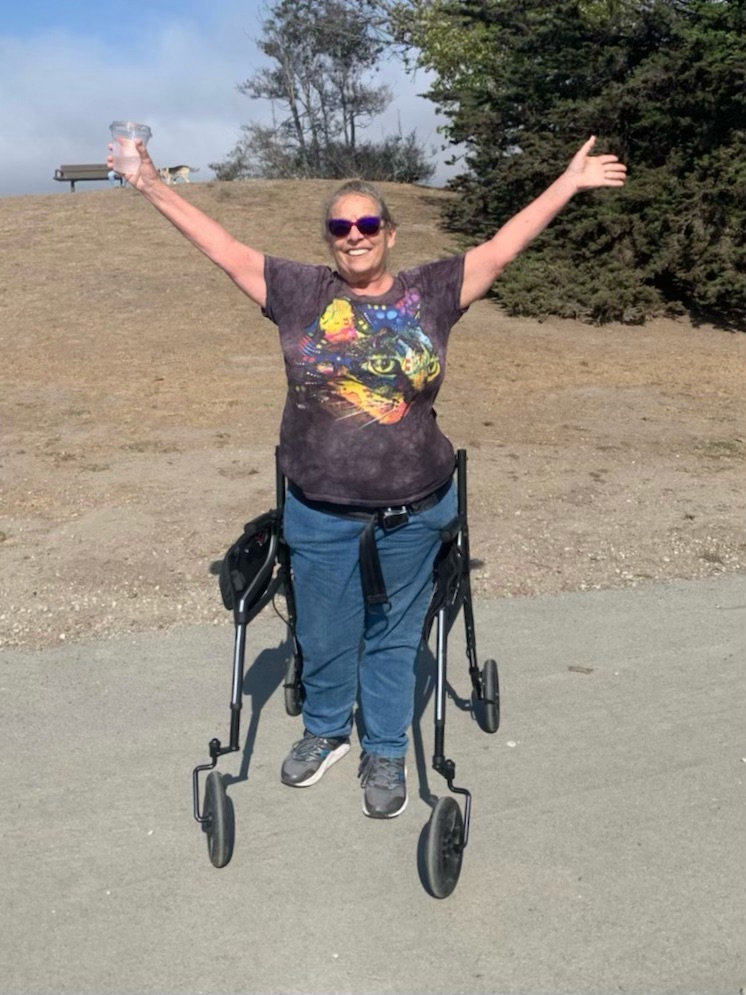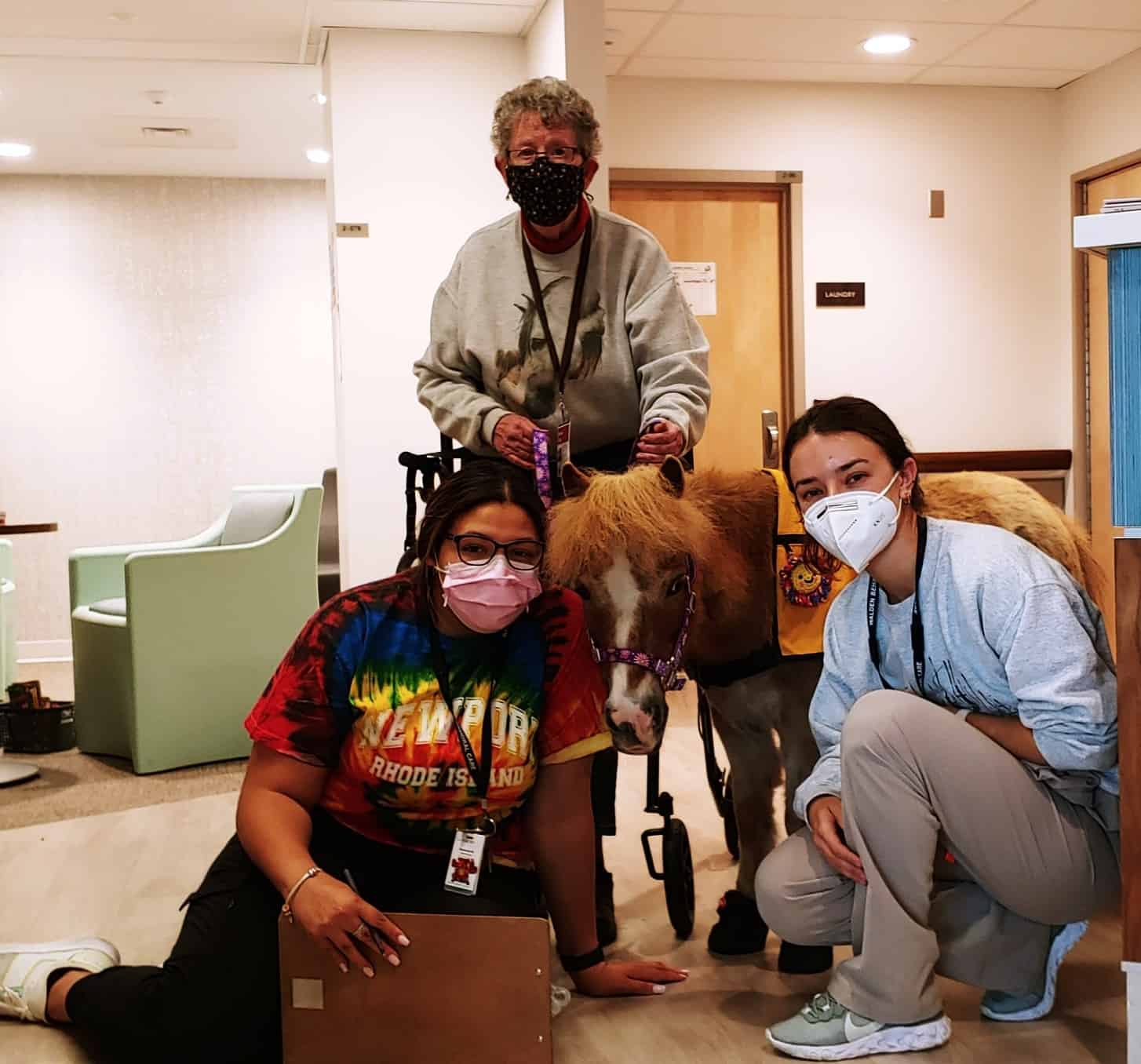 Just before my husband and I hit the road to visit our son, something strange was happening in my brain. You know how, when you’re going up in an elevator, just before it hits the floor you’re going to stop at, it gives a little lurch? I was feeling that bounce like twice a minute. It was spring, so I thought it might be allergies – nothing more. After all, I had just had a physical. Super cholesterol. No drinking, no smoking. I was in great health.
Just before my husband and I hit the road to visit our son, something strange was happening in my brain. You know how, when you’re going up in an elevator, just before it hits the floor you’re going to stop at, it gives a little lurch? I was feeling that bounce like twice a minute. It was spring, so I thought it might be allergies – nothing more. After all, I had just had a physical. Super cholesterol. No drinking, no smoking. I was in great health.
I had no reason to think I was about to suffer a massive stroke I’d be lucky to survive.
We got there, and I was still bouncing. It continued as we went to bed. At three or four in the morning, I got up to use the bathroom, and as I came back, that little bump had suddenly morphed into more of a sickening drop with a whomp in my head. I climbed back into bed with my husband.
“I don’t feel very good,” I said.
“Oh?”
“Yeah. Something isn’t right about this.”
I didn’t want to scare my son, but I started thinking maybe we should call an ambulance. That’s the last thing I remember. I was told everything that happened next.
I was airlifted to the hospital. They couldn’t figure out what was wrong with me, so they did emergency surgery. They cut up the back of my neck at the base of the skull and found where I was bleeding into the subarachnoid layer around the brain.
Few people live through what I’d encountered. In the ten years since then, I’ve met maybe one survivor of the type of subarachnoid hemorrhage (SAH) I had. I guess Heaven doesn’t want me, and Hell’s afraid I’ll take over.
I Survived, but My Legs Wouldn’t Cooperate
My legs are like two belligerent teenagers. Sometimes they listen, but not entirely, and they can suddenly decide they don’t know what I want, and they don’t care. My fall risk was pretty high. Still, I was determined to get out of the wheelchair and into a walker or rollator.
I was able to use them, but I can get a little top-wonky. They’re not really stable enough. All my focus had to be put on balance to avoid falling. And I had to come up with something to help me stand up straighter. My lower back and my arms would hurt after leaning on a rollator for too long.
I had survived and was super blessed that I didn’t have pain. But during surgery, blood had dripped onto the cerebellum, a part of the brain that controls motor functions. Blood on the brain is like battery acid. It scarred it, sort of acid-washed it. As a result, I had dizziness. My hearing and vision were affected. And when I try to walk, the right signals don’t always get to my lower body.
The LifeGlider Is Now My “Silent Assistant”
Once I started using the LifeGlider, I realized it was exactly what I needed! I call it my “silent assistant” because it attaches to me and attends my standing, like an assistant always holding onto me. You know those videos of little dogs with broken back legs, and then you attach a little wheelchair and they just joyfully take off? You can tell it feels so good to be able to move at full speed again. That’s how I see myself now. I’m that little dog!
The LifeGlider is so wonderful to take shopping because I can go hands-free. I used to lean on the shopping cart. That worked okay. But now I can actually handle fruits and vegetables or cans without having to somehow maintain a grip on the cart. I can turn and put them in the basket. The first time I did that, I was like, “Do you see what you’re doing??”
This is also the first step I’ve taken since my SAH toward actually being able to ambulate upright. I wish it had been available to me 10 years ago. I don’t think I would have had to deal with a standard rollator or a wheelchair at all. The LifeGlider is a 150 percent gamechanger. I am fairly convinced that this is the absolute future!
This Is What Unbroken Feels Like
One day, I was at the park with a friend. I got my LifeGlider out, we started walking, and he noticed something different in me. He told me this was the first time he’d seen me take off and walk fast enough to outpace him, and he walks all the time. But it was more than that.
“I’ve never seen you unbroken,” he said.
I knew what he meant because I understand disability. I’ve seen a lot of it. And since my SAH, I’ve experienced how it can make you avoid doing certain things because they’re too dangerous or too difficult. It can start to make you feel like you’re always behind the eight-ball. Broken.
Now, I’m more unbroken than I’ve been in a decade, thanks to my LifeGlider!


